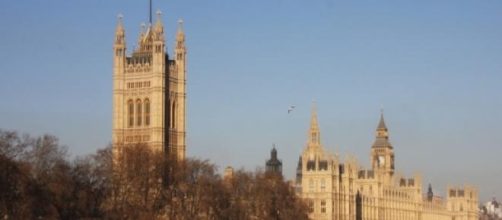Once upon a time it was said the Conservative party was the party of the "well to do", and the Labour party was the "working man's" political party. For a while it seemed the Conservative party, under people like Margaret Thatcher and John Major - because they were from ordinary backgrounds - had reached out to middle/working class people, but now it seems that under David Cameron and George Osbourne, the Conservative party has returned to its rich voter power base and to some do not seem on the side of ordinary, every day people.
The Labour party under people like Tony Blair seemed to reach out to the traditional Conservative voter and be more business minded under the project of New Labour, but since the rise of Ed Miliband as party leader, it seems he is trying to get the vote of the traditional working class Labour vote back.
So it would seem the two main political parties are out to catch their traditional voters, Labour because they want to under Ed Miliband and the Conservatives because perhaps their actions of cutting back on welfare and public services and the rise of zero hour contract jobs have alienated the poor and working class.
Ed Miliband like David Cameron before him is making a lot of promises, some of which maybe designed to get voters like being tough on immigration or disbanding zero hour contract jobs or others may be real, but do not quite get to see the light of the day because when an opposition party becomes the government, they find their promises get lost in the scheme of things – or they are not able to carry them out due to circumstances like lack of money once they are in government.
Ed Miliband's ploy to attract traditional Labour voters like ethnic minorities, the unemployed, left of centre people and maybe get some disillusioned Conservative or Lib-Dem voters on the way may not quite succeed. In Scotland because of the SNP and the charismatic Nicola Sturgeon who proved popular with all British voters, and in Wales Plaid Cymru led by Leanne Wood who has become something of a sex symbol to male voters, judging by male admirers on Twitter, and the rise of the Greens and finally but not least, UKIP, led by a man who seems to connect with a lot of voters because he says things the other party leaders dare not say and people appear to like that in Nigel Farage.
Come May 7 as with the election in 2010, once people's votes are cast the length and breadth of the UK, things in Westminster may never be the same again.

